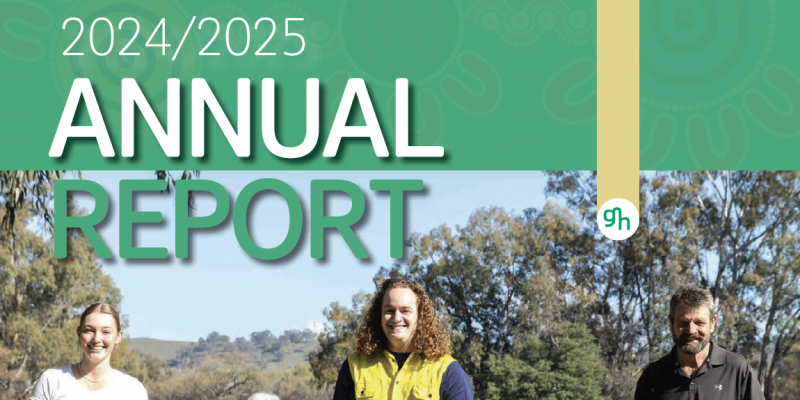This month is Mental Health Month, a national event which aims to improve community awareness and interest in mental health and wellbeing.
The theme for 2024 is “it’s time to talk about mental health” and we’ve asked our Mental Health and Wellbeing teams to talk about breaking down stigma, seeking support and the importance of early intervention.
In this article, we hear from the residents of the Wangaratta Therapeutic Community on the the importance of self-care for wellbeing.
_____________________________________________
Residents at Gateway Health’s Wangaratta Therapeutic Community (WTC) can stay up to 12 months in residential treatment to address alcohol and/or drug dependence, the related issues, and cooccurring conditions such as physical illness and mental health conditions.
Mental health conditions such as anxiety, depression and post-traumatic stress disorder are common in people who seek treatment for alcohol and/or drug dependence.
In exploring the reasons that led to their dependence on alcohol and/or drugs, residents at the WTC may identify they didn’t know how to manage feelings of stress in a healthy way. They might not recognise the impact of previous traumatic experiences or know how to manage difficult emotions such as grief, guilt and shame. Incorporating regular self-care activities into daily life is recommended to support both physical and mental wellbeing.
“I used to try and keep everyone else happy. Since coming to the TC I’ve slowly remembered how important self-care is for me. How important it is for my mental health.”
“It’s important to take time out every day to show myself love and support, to reinforce a healthy lifestyle and healthy mental state.”
“Self-care is a way to give back to ourselves and recharge our capacity to tackle day to day life.”
“I make the time for meditation during the day to check in on myself. It allows me to address anything that has affected me.”

Their reflections on self-care include the following.
“… is about self respect, getting the most out of my brain and protecting my brain.”
“… helps to fill up my bucket for the times when life gets too difficult. Now I have tools I can use to help me through.”
“… helps keep my mental health in check, keeps me in touch with myself and other, helps me achieve long-term sobriety.”
“… teaches me that I need to care about myself, I do deserve to be happy and healthy.”
“… brings me back to the here and now. It is also a way for me to regulate and learn about myself. Making me realise I am me and I love me for the way I am.”
“… helps me calm down and unwind from a full day. It helps me get a good night’s sleep.”
“… alleviates stress, recharging, motivating, improves physical and mental health.”
The Wangaratta Therapeutic Community is a residential treatment service for alcohol and other drug use, based on the therapeutic community model. The facility provides a structured residential program that incorporates a balance between work, therapy, education and recreation. Find out more at https://gatewayhealth.org.au/services/alcohol-drug-support/wangaratta-therapeutic-community/
Gateway Health offers professional and confidential counselling and mental health services provided in safe, supportive and non-threatening environments across a range of services. Find out more at https://gatewayhealth.org.au/services/counselling-mental-health/
Reference:
Marel, C., Siedlecka, E., Fisher, A., Gournay, K., Deady, M., Baker, A., Kay-Lambkin, F., Teesson, M., Baillie, A., Mills, K.L. (2022). Guidelines on the management of co-occurring alcohol and other drug and mental health conditions in alcohol and other drug treatment settings (3rd edition.). Sydney, Australia: Matilda Centre for Research in Mental Health and Substance Use, The University of Sydney, https://comorbidityguidelines.org.au/








